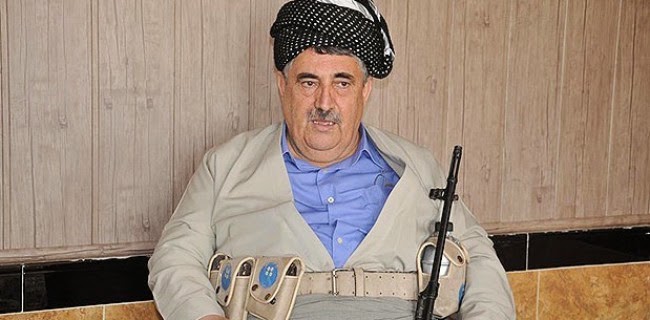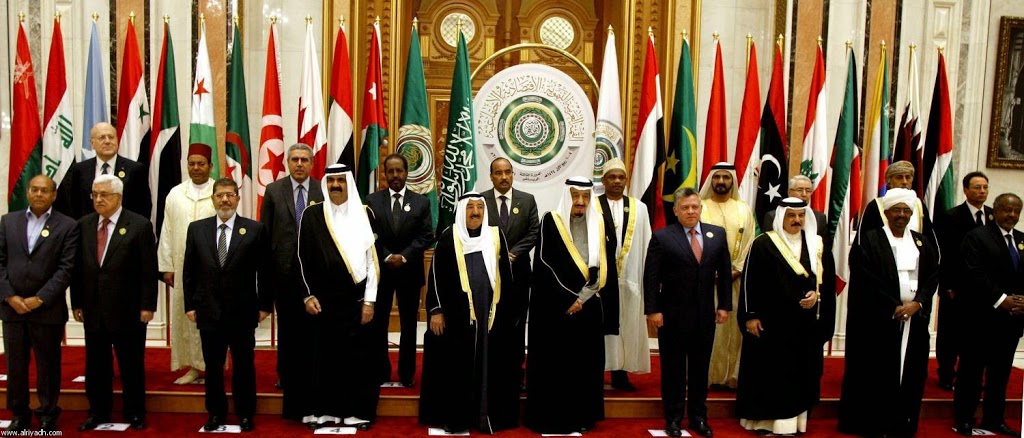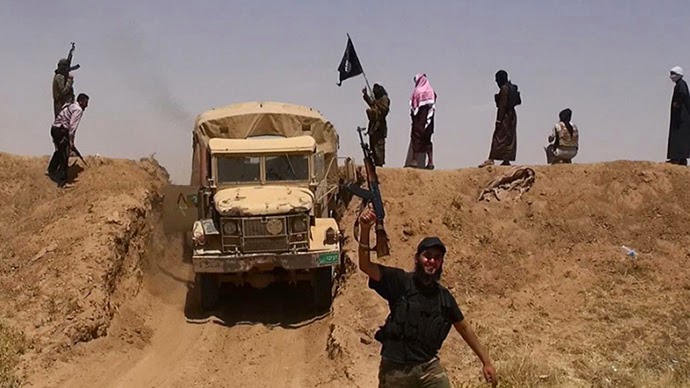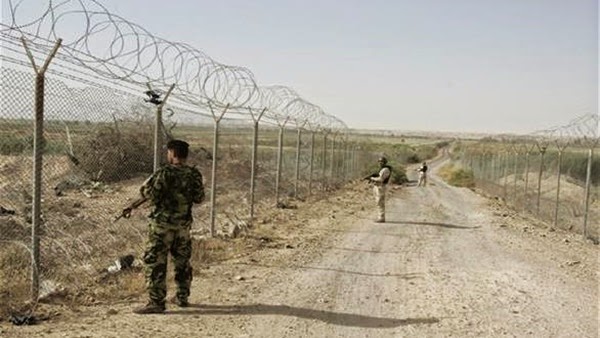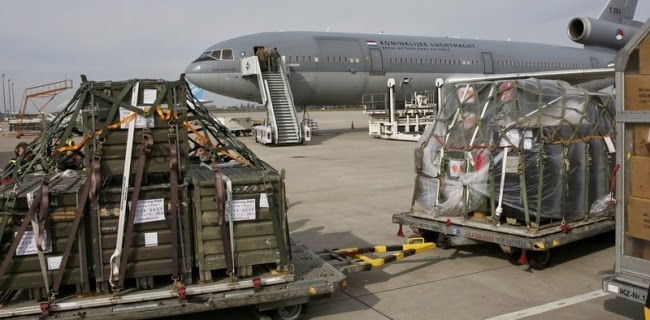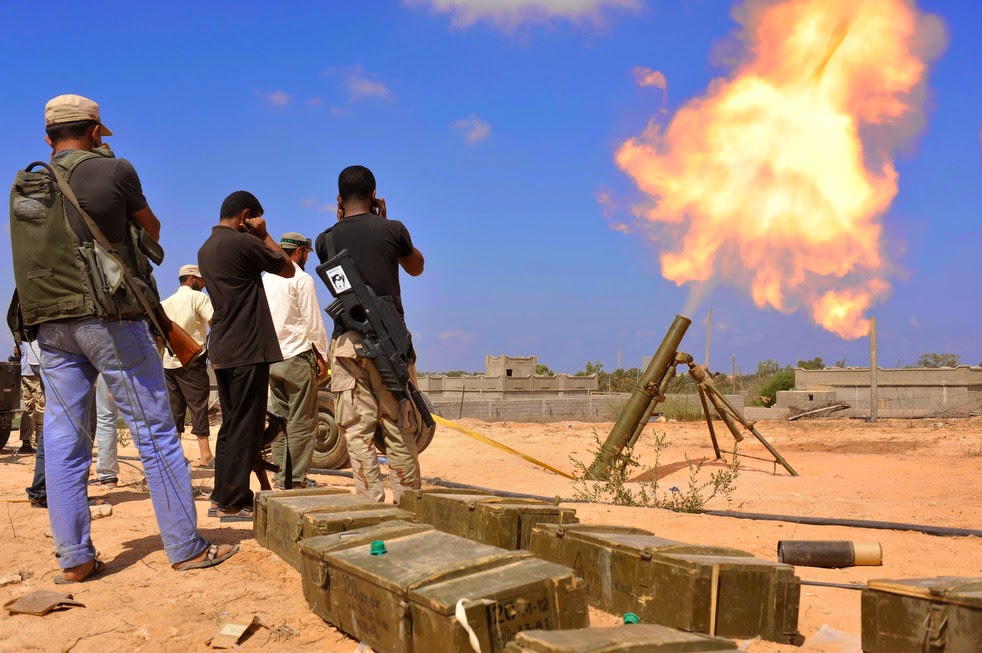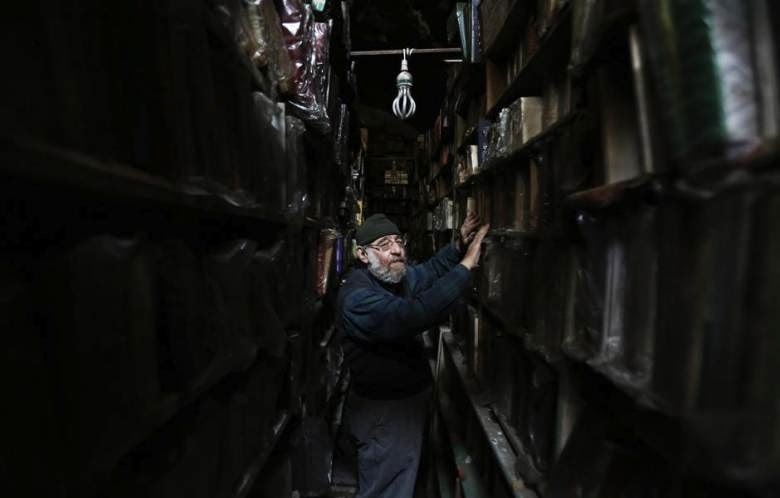Arab League expresses full support for Libya’s Tobruk-based government
The Arab League held an emergency meeting in Cairo on Monday to discuss recent developments in Libya, according to an Arab League statement.
The meeting came following an urgent request made by Ashour Bourashed, Libya’s permanent delegate to the League.
The meeting was attended by Secretary General Nabil El-Araby and Arab League Special Envoy to Libya Nasser Al-Kidwa. It aimed to discuss the ongoing conflict in Libya and the wave of violence that has recently gripped the country.
The League condemned the recent attacks on oil storage facilities, the murder of an Egyptian doctor and his family and the abduction of 13 Egyptian citizens by armed militias in Libya. It further expressed its support for the legitimate Libyan authority represented in the elected House of Representatives and the government that has emanated from it, according to the statement.
El-Araby stressed the importance of decisive action in the pursuit of Libya’s unity without interfering with its domestic affairs. He added that among the League’s current priorities is the ending of armed terrorist operations that have been targeting Libyans as well as foreign nationals residing in Libya.
Bourashed called on the international community to bear moral and legal responsibility for Libya’s current situation, and to rapidly provide arms to Libyan troops to enable them to carry out their national duties.
Whilst refusing foreign military intervention in his country, President of the House of Representatives Aqila Salih called on the Arab League to intervene to protect vital institutions in Libya should action be necessary.
He also called on the League to stop the violence committed by militia groups inside Libya, according to the statement.
The Algerian delegation was the sole delegation to express reservations on the text of the League’s joint statement, which mentioned support for the elected House of Representatives and its government. Debates on providing Libyan troops with arms were inconclusive and it was decided that it should be tackled in the Arab Foreign Ministers’ upcoming meeting in Cairo, to be held later this month, according to DW.
Isa Al-Aribi, who is in charge of the House of Representative’s energy portfolio, spoke to Libyan newspaper Al-Wasat on Monday and said that he has sensed the support of the whole League, especially the Gulf States. This comes after a recent bombing at the parliament’s headquarters in Tobruk last week, which helped the Libyan delegation garner more support from the Arab League, Al-Aribi said.
Libya is currently witnessing a period of contested legitimacy between Tripoli and Tobruk. The international community recognises the government in Tobruk and the House of Representatives elected in June 2014. The Arab League has also affirmed its support to the Tobruk-based government and parliament in yesterday’s meeting.
Source: dailynewsegypt
Bad news: United Nations postpones Libya peace talks again
The United Nations postponed peace talks between Libya’s warring factions which had been scheduled for today without announcing a new date.
The talks had originally been slated for December 9 but have been repeatedly delayed as fighting has intensified between the beleaguered internationally recognised government and Islamist-backed militias.
UN mission spokesman Samir Ghattas told Libyan media late last night that efforts were continuing to get the talks back on track.
More than three years after dictator Moamer Kadhafi was toppled and killed in a NATO-backed revolt, the country remains awash with weapons and powerful militias, and has rival governments and parliaments.
UN Special Representative Bernardino Leon in Libya chaired a first round of talks between rival lawmakers in the oasis town of Ghadames in September.
But his efforts to convene a new round of talks and to broker parallel negotiations between the warring parties have so far failed, despite a warning by the UN Security Council in October that it would impose sanctions on any party that undermined the process.
The internationally recognised parliament voted last week not to attend any negotiations if the rival legislature in Tripoli was invited.
The Islamist-backed militia alliance that controls the capital and Libya’s third largest city Misrata launched an offensive last month to try to capture the country’s main eastern oil export terminals.
Loyalists of the internationally recognised government, which has taken refuge in the remote east, responded with their first air strikes on Misrata.
The United Nations says that since fighting intensified in May, hundreds of civilians have been killed and hundreds of thousands more have fled their homes.
Arab League ambassadors were due to meet in Cairo later today to discuss the deepening conflict.
Libya’s neighbours, fearful of a spillover of the violence, have repeatedly called for international intervention.
But French President Francois Hollande said on Monday that any intervention would require a “clear mandate” from the United Nations, “clear organisation” and the appropriate “political conditions”.
Source: outlookindia
IS executes 5 suspected ebola and AIDS infected insurgents in Mosul
Over 1,000 ISIS fighters hide in Lebanese mountains on Syrian border – security chief
Islamic State militants are attempting to infiltrate Lebanon from Syria, Beirut’s security chief has warned. Forces have been put on high alert to prevent the civil war in Syria spilling across the border.
Incursions are taking place in Qalamoun Mountains, which marks Lebanon’s eastern border with Syria, where Islamic State (also known as ISIS, or ISIL) militants are trying to take over Lebanese villages to gain better fighting positions, Major General Abbas Ibrahim, head of Lebanon’s Directorate of General Security (DGS), told Reuters.
“Islamic State does not want to dominate Qalamoun… but they want to use it to secure their backs in the region through controlling [Lebanese] villages in contact with the Qalamoun area,” Ibrahim said, adding that the number of militants in the Qalamoun region is increasing.
“In the recent period about 700 new fighters pledged allegiance, and so they are now more than 1,000 fighters,” the general said.
“The [Lebanese] military and security forces are on full alert,” Ibrahim told Reuters. In June 2014, an assassination attempt was made on Ibrahim using a suicide bomber.
Since February 2011, when the fighting in Syria began, incidents on the Lebanon-Syria border have increased. In 2014 militants organized several high-scale attacks on Lebanese territory, such as the assault on the border city of Arsal, when Lebanese soldiers were held captive, and clashes of IS-associated militants with Lebanese law enforcement agencies in Tripoli, the country’s second-largest city, located 30 kilometers south of the Syrian border.
Ibrahim said that Lebanese security agencies have carried out a number of successful, previously unreported, operations against Islamist networks in the country.
Some Lebanese citizens living close to the Syrian border have expressed a willingness to fight against ISIS.
In October, RT reported that Lebanese Christians were arming themselves to defend their land and families from the extremists.
ISIS has carried out some of the worst atrocities of the 21st century, yet relatively little is known about the bloodthirsty militant group, who conquered large parts of Syria and Iraq in the space of just six months. RT traveled to one of ISIS’s key holdouts in Lebanon to find out the group’s goals and why the militant organization has become such a magnet for Sunni radicals both in the Middle East and from around the globe.
Source: RT
Border Guards repel ISIS attack on border station between Iraq and Saudi Arabia
On Sunday, a security source in Anbar province announced, that a force of the border guards managed to repel an ISIS attack on a border station between Iraq and Saudi Arabia, indicating that the clashes resulted in killing two members of the terrorist organization and wounding four others.
The source said in an interview for IraqiNews.com, “Today, a force of the border guards was able to repel an ISIS attack on Anazh station on the Iraqi-Saudi border west of Ramadi,” noting that, “Elements ISIS attacked the station after they drove off from the Ratba city.”
The source added that, “Clashes continued for two consecutive hours,” adding that, “It resulted in the death of two ISIS elements and the injury of four others, while a border guard was killed and two others were wounded.”
Source: iraqinews
France will not intervene alone in Libya – Hollande
France will not intervene alone in Libya to try to end the chaos there, but French forces will strike any terrorist groups exiting their bases in the south of that country and threatening neighbouring countries, President Francois Hollande said on Monday.
In a marathon, two-hour interview on “France Inter” radio, the French leader criticised the international intervention in Libya in early 2011 for not going far enough.
He said that the current situation in Libya is due to the failure to follow up on the military intervention by creating political conditions for stability.
The problem is “when we make a military intervention and we don’t extend it by a political dialogue, look what’s happening in Libya,” Hollande said.
“France is already intervening in the region – in Mali – we are supporting countries touched by the actions of Boko Haram, which struck near Chad only hours ago,” the President indicated.
“On Libya, we have a forward base in Niger. We are working to contain terrorists who have taken refuge in southern Libya (but) France will not intervene in Libya because it is up to the international community to assume its responsibilities and it must make it possible to have a political dialogue… so that order is re-established,” he commented.
He added that “it is now up to the UN” and if there is a clear organisation and mandate to intervene, France would consider participating but “we are not there yet.” “In the south of Libya, there are very important centres of terrorism, the same that were in Mali or can be found in Nigeria or elsewhere…we will strike them every time they leave these hiding places,” Hollande said, adding that he hoped the terrorists would hear this warning.
France has deployed over 3,000 troops in the region, mostly in Mali, Niger, Chad and Mauritania to counter terrorist threats and this force has a vocation to remain in the region for the foreseeable future.
Regular strikes against terrorist convoys travelling in the region are reported here and France has both air and ground forces taking part in these actions.
Source: kuna.net.kw
Cache of new weapons arrives in Kurdistan region
Arab League to hold urgent meeting Monday on security situation in Libya
The Arab League will hold Monday an urgent meeting on the security situation in Libya, said the Arab League’s Deputy Secretary General Ahmed Ben Helli.
The meeting, which will bring together the permanent representatives, will be devoted to the examination of the serious developments in the situation in Libya and the escalating violence and acts of terrorism in the country, Ben Helli told the press.
These acts “do not target only individuals (…) but also vital economic infrastructures representing the wealth of Libyan people, particularly the oil reservoirs.”
The meeting was requested by Libya’s permanent representative to the Arab League.
Since the fall of Muammar Gaddafi, after eight months of conflict in 2011, Libya is run by two parliaments and two rival governments, one close to Islamist militias of Fajr Libya and another recognized by the international community, based in Tobruk near Egyptian border.
The country, is witnessing unprecedented escalation of violence and acts of terrorism targeting not only Libyan citizens and foreigners but also vital economic infrastructures, especially oil plants, which represent the wealth of the Libyan people.
Source: aps.dz
Lebanon: Tripoli’s torched al-Saeh Library reopens after one year
Kafana Samtan, or “Enough Silence,” reopened Saturday Tripoli’s famed al-Saeh Library, Lebanon’s second largest and home to some 100,000 books, exactly one year after it was set ablaze by unidentified assailants.
On January 3, 2014, the decades-old library was torched and its owner, Father Ibrahim Sarrouj, a Greek Orthodox priest, was assaulted.
Located in the historic heart of the Lebanese city of Tripoli, the antiquarian bookshop contains hundreds of books, including rare first editions of scholarly texts and out-of-print magazines.
An untold number of books were destroyed as Civil Defense teams struggled to put out the flames which engulfed one of Lebanon’s most renowned libraries late at night.
According to AFP, two thirds of some 80,000 irreplaceable ancient Muslim and Christian texts and manuscripts were destroyed.
Within hours after Father Sarrouj’s books went up in flames, Lebanese from different religious and political backgrounds flocked to the site and politicians raced to denounce the attack.
Few days after the attack, Kafana Samtan launched a fundraising inititaive to repair the library on Zoomaal, an online Arab crowdfunding platform, and was able just one month later, thanks to 298 donors, to collect US $35,000.
Addressing some 100 Tripoli residents who attended Saturday’s reopening ceremony, Father Sarrouj thanked Kafana Samtan, civil-society groups, and all the young men and women who helped replenish and rebuild his library, praising the positive role the people of Tripoli played.
Moreover, a short film directed by Lida Kabara, a Tripoli resident, was shown during the ceremony, in addition to statements by those who took part in the fundraising campaign.
Rumors swirled following the attack but the real motive remains unknown.
Sources told Al-Akhbar at the time that the attack was prompted by rumors spread by Salafi youths about the discovery of polemical writings insulting to Islam inside one of the books at the library. Another rumor was that Father Sarrouj authored an incendiary pamphlet about the Prophet Muhammad.
The attack, meanwhile, came amid a backdrop of growing religious radicalism and sectarian tensions in Lebanon related to the war in neighboring Syria. In October, Tripoli was the scene of one of the deadliest spillover of fighting in the almost four-year war in Syria.
In an interview in January, Father Sarrouj, a longtime resident of Tripoli’s old neighborhood, told Al-Akhbar that he worried about his library far more than he worried about himself.
Trying to hide his broken spirit under his usual smile, father Sarrouj talked about Palestine, pan-Arabism, and progressive revolutions in the world. He said he aspired to a new flock of activists who will liberate Palestine.
“All this will turn into a roaring river that would sweep away Israel. Never mind this fanaticism – I know Tripoli quite well. This is our city, and these are our young men” said Father Sarrouj.
Source: al-akhbar
